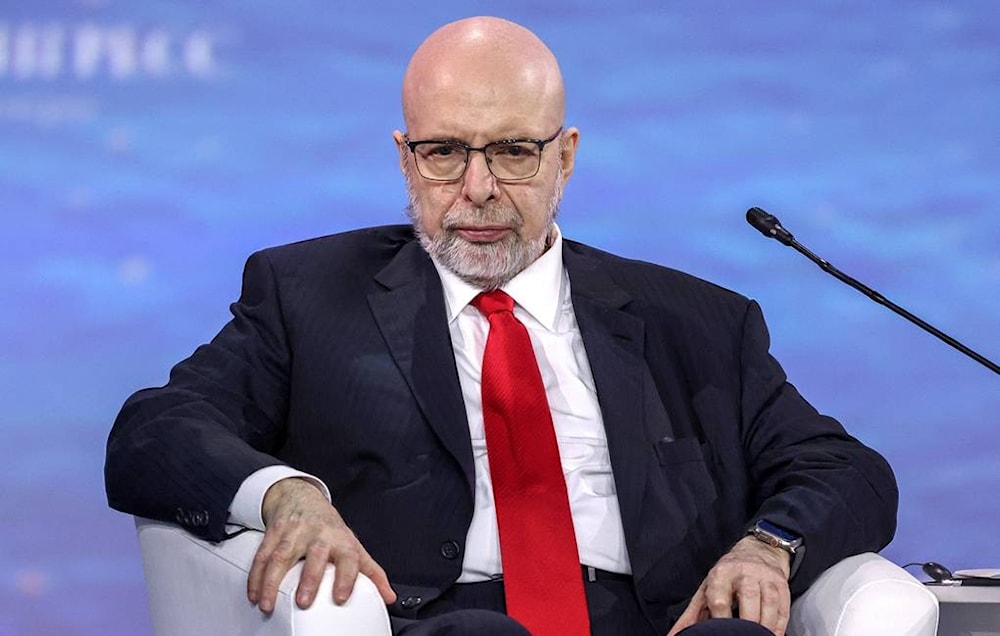The FBI executed a raid on August 13 at the Virginia home of Dimitri Simes, a prominent author, policy analyst, and former adviser to Donald Trump’s 2016 presidential campaign. Simes, who currently hosts a program on Russia’s state-controlled Channel One, was not present during the raid as he was abroad. He later expressed shock, saying he had not been informed of the search and remained unaware of any investigation involving him.
Initial reports of the raid came from Rappahannock News, which cited FBI sources. Simes, whose name is mentioned over 100 times in Special Counsel Robert Mueller’s 2019 report on Russian interference in the 2016 U.S. presidential election, voiced concerns about the motives behind the search. He described the incident as an intimidation tactic aimed at silencing dissenters, particularly those critical of U.S. foreign policy.
“I’m puzzled and concerned,” Simes stated in a public comment. “I have not seen a warrant. I was not contacted by any law enforcement or anyone else whatsoever.” He went on to suggest that the true purpose of the raid might not be to bring him in for questioning or arrest, but rather to discourage his return to the United States.
In an interview with Sputnik News, a Russian state-controlled media outlet, Simes speculated that the raid represented broader efforts by the U.S. government to suppress voices that challenge official narratives. “Clearly, this is an attempt to intimidate, not only somebody from Russia but anyone who goes against official policies and particularly against the deep state,” Simes asserted.
Simes’ son, Dimitri Simes Jr., echoed his father’s concerns. He claimed his father had not visited the United States since 2022 and hinted at a politically motivated effort by the Biden administration. In a tweet, Simes Jr. accused the administration of trying to stifle dissent on key geopolitical issues, particularly regarding Ukraine and Israel. “The Biden regime is terrified of being called out over Ukraine and Israel,” he wrote. “Elements of the Biden regime are trying to disrupt any possibility for de-escalation with Russia and plunge America into World War III.”
The raid has sparked a diplomatic response from Russia. Russian Ambassador to the United States, Anatoly Antonov, described the raid as part of a larger “witch-hunt” against those deemed undesirable by U.S. authorities, especially in the run-up to the 2024 election. Antonov condemned the actions as part of an ongoing campaign to target individuals who are perceived as Russian foreign agents operating in violation of U.S. foreign agent laws.
“These attacks by the U.S. authorities on the TV presenter of Channel One are one of many facts of the ‘witch hunt’ unfolding here with renewed vigor,” Antonov said. He expressed concern over the growing crackdown on dissenting voices in the U.S., adding, “We are certainly worried about what is happening.”
Antonov went on to accuse Washington of double standards, particularly when it comes to democracy and freedom of speech. He criticized the targeting of individuals simply for challenging U.S. policy, leading to actions such as home break-ins, searches, and the seizure of documents. “Hundreds of people are declared objectionable simply because they dare to contradict the administration’s policies,” he said.
The incident comes at a time when tensions between the U.S. and Russia are already high, with both nations locked in geopolitical conflicts over Ukraine, Syria, and broader issues of international influence. As investigations continue, the raid on Simes’ home is likely to fuel further debates about the limits of freedom of expression and the role of foreign influence in U.S. politics.
For now, the reasons behind the FBI’s actions remain unclear, and Simes has indicated that he will continue to seek answers while remaining abroad. “My suspicion is that instead of trying to get me to come to the United States and to interrogate me or even to arrest me, their real purpose is to make sure that I would not come back,” he said.
The FBI has yet to release an official statement regarding the nature of the investigation or the specific allegations that led to the raid on Simes’ home. Meanwhile, the situation has prompted concerns from both sides of the political spectrum about the implications of using federal law enforcement to target political figures with international ties.
The raid on Simes’ home serves as a flashpoint in the broader conversation about foreign influence in U.S. politics and the fine line between national security and political repression. As this story unfolds, it is clear that the issues raised by the raid will have lasting reverberations in both domestic and international political circles.
Related


































